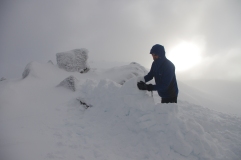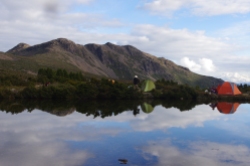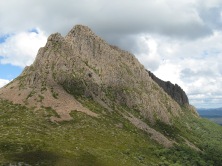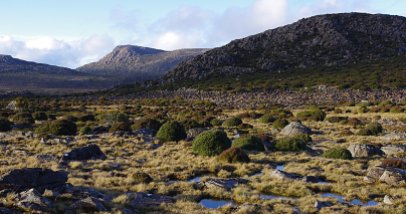It’s getting on to four years that the Victorian government has been pursuing its attempt to re-introduce cattle into the Victorian alpine national park. You would think that for an issue they are so committed to they would actually be able to produce a comprehensive and scientifically robust plan.
This has not been the case. The following article from the ABC is just the latest criticism of the trial from a scientific perspective. Journalist is Jeremy Story Carter.
Alpine grazing trial given fail mark
 A senior scientist says the proposal for the Victorian National Alpine Park cattle grazing trial would receive a fail mark if it was the work of a student.
A senior scientist says the proposal for the Victorian National Alpine Park cattle grazing trial would receive a fail mark if it was the work of a student.
Professor Mark Burgman, chair of the School of the Botany at the University of Melbourne, reviewed the proposal as part of a submission to the Victorian Government by the Australian Academy of Science.
“If this was a Masters’ project, we’d boot it back to the student,” said Professor Burgman.
“If it was submission to the Australian Research Council, it wouldn’t get to first base, it would get bounced.”
Federal Environment Minister Greg Hunt last week approved the trial, which will allow 60 cattle to be released into the Wonnangatta Valley this year, with more permitted over the coming two years, subject to review.
Professor Burgman believes the trial should not be permitted in its current form, as it fails to incorporate years of exhaustive research into the impacts of grazing on alpine regions.
“The science I see in front of me is lacking, and it is an admission that should be redressed before anyone starts to think about doing a trial of any kind,” he said.
“There is a wealth of information that could be used to help design the study, but they didn’t make any use of it. That 50-60 years of research ought to have been used to design the study.
“From a scientific perspective, it doesn’t make any sense to do that.”
He says the trial is too narrow in scope, and there is a potential for its findings to be used in other, broader contexts.
“It is very limited in space and its time – three years, one location,” said Professor Burgman.
“If one were to do this in isolation, it would be very easy to generate a set of results that are misleading, that you are then tempted to extrapolate to other places, other situations, that simply won’t function in the same way or react in the same way.”
Professor Burgman is concerned results from the trial could lead to mismanagement of future grazing regions.
“If you treat this trial in isolation, you will end up with some pretty significant surprises and start to manage the place in ways that will lead to outcomes you would have rather avoided.”

































































Recent Comments